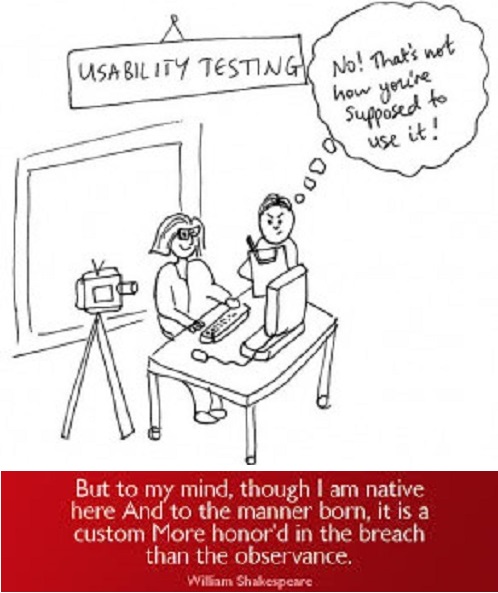We at Wild Bill Web Enterpises have been tracking the visitors (and other metrics) for our three websites–including TechnologyBloopers, WhyMenDieYoung, and Wilddancer—on a weekly basis using Google Analytics and on a monthly basis using our ISP for nearly two years, and are baffled by the helter-skelter, all-over-the-map, random-looking numbers Google Analytics is providing us. Apparently this is a common problem, with a lot of possible causes, including some possibilities that could be our fault (well, the lack of useful guidance from Google and other sources isn’t really OUR fault). And it isn’t that our visitor volume is so high that we are the victim of Google’s sampling process. But we, and probably millions of other website developers, find it highly difficult, even impossible, to make any decisions based on this data. Why don’t the Internet and the Web take advantage of the huge computing power of the hardware and software to provide reasonably accurate statistics so that we can make things easier and more productive for both us and our visitors?
Monthly Archives: June 2016
The Witches’ Brew that is YouTube
Google presciently bought YouTube from its founders in October 2006, “betting that the popular video-sharing site will provide it an increasingly lucrative marketing hub as more viewers and advertisers migrate from television to the Internet.” Silly us. We thought that YouTube was something that individuals could use to entertain ourselves, and that popular ones would bring their originators (and Google) some (or a lot) of money from ads.
Well, Google sure isn’t making it easy for individuals, thanks to the messy combinations of accounts, email addresses, channels, and browsers that makes it a nightmare to find videos once you have more than one of each of these four entities. And to make matters worse, Google threw its failing Google+ social network into the brew. Using Chrome we find three channels (or are these accounts?)—Wilddancer, Beekeeping (thus far empty as we try to sort out the whole mess), and Bill Coggshall—associated with one email address, and two channels—Car Tunes by Coggshall (which started out as “Car Tunes” that YouTube allowed me to reserve then reneged and forced me to add “by Coggshall”) and bill@technologybloopers.com (strange-looking channel, no?)– associated with a different email address (bill@technologybloopers.com). Using Firefox we find two channels (or accounts?)—Car Tunes by Coggshall and bill@technologybloopers.com—associated with email address bill@technologybloopers.com.
Usability Testing: More Honored in the Breach than the Observance
The Internet and the Worldwide Web have arguably changed the path of history. And they have made companies like Google into mega successes. But those companies have also caused much consternation among their millions of users. Why? Apparently they don’t bother to check with many (or any!) of those users to see how logical and self-evident their websites and associated tools are for their target audiences. Examples abound, and we will be posting some of the more egregious. But the Internet giants could have been even more successful, and keep website visitors on their sites longer (where they would be exposed to more advertisements) if their user interfaces were less opaque. The goal is usability, which is not rocket science. Two of most used tools are the Chrome browser and YouTube, which we will discuss in separate posts.
“Prediction is difficult, especially about the future”
Whether this truism came from Yogi Berra or Niels Bohr isn’t the point. We’ve made our share of bad forecasts, so can’t cast the first stone at the partners of Play Bigger Advisors for their July 15, 2015 analysis as to why FitBit should be trumped by GoPro. However, on June 1, 2016 the market capitalization for FitBit was $3.13 billion while that of GoPro was $1.44 billion. But we are not in the business of advising small companies how to get bigger faster, nor publishing a book called Play Bigger: How Pirates, Dreamers, and Innovators Create and Dominate Markets.




